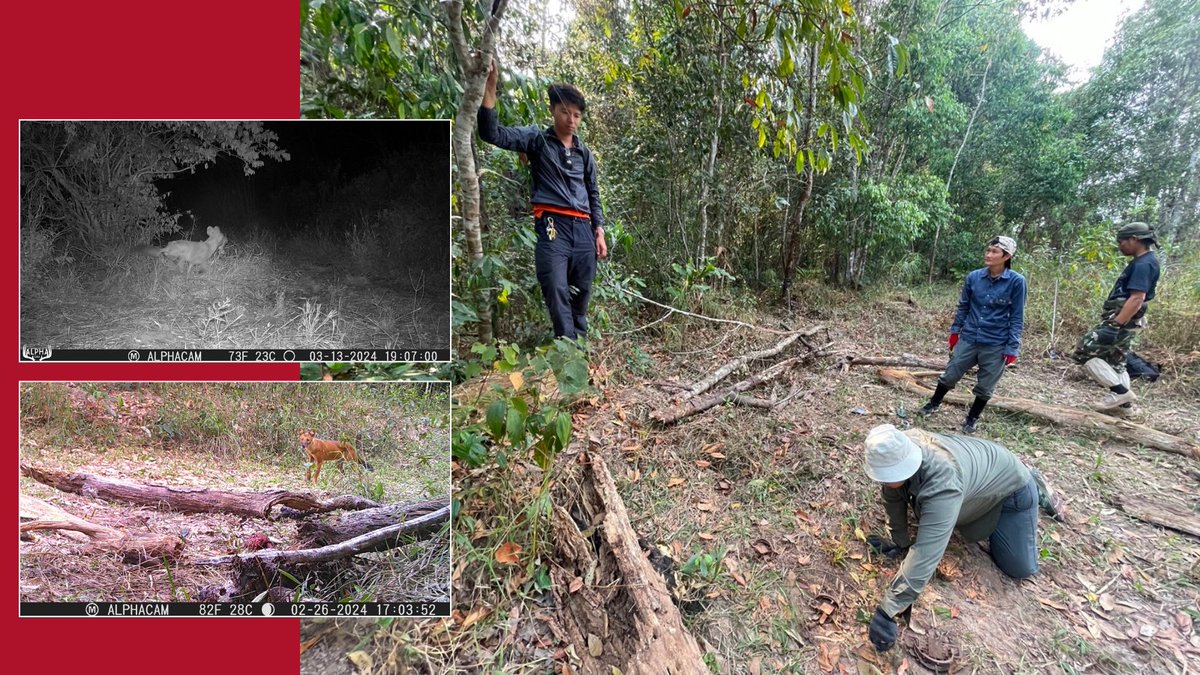
Cornell Yang Center for Wildlife Health
@wildlifecornell
Advancing science-based solutions to secure a healthier future for wildlife, people and planet.
ID: 948673053801693185
https://wildlife.cornell.edu 03-01-2018 21:50:56
1,1K Tweet
871 Followers
565 Following

Cornell's Sebastian Heilpern and Kathryn Fiorella dive into the details on #sustainable fish and seafood choices. #OneHealth Sebastian Heilpern Katie Fiorella

In this One World One Health podcast by the One Health Trust, Maggie Fox chats with Dr. Marcela Uhart Karen C. Drayer Wildlife Health Center (WHC) about the impact the H5N1 avian influenza virus has had on elephant seals and what this could mean for other animals and humans: onehealthtrust.org/news-media/pod…


#CornellVet student Erin Guntrum, DVM ‘25, discusses her externship with @oregonzoo and how her Cornell University College of Veterinary Medicine training has prepared her to work with non-traditional species in our most recent blog from the field 🐾🩺 wildlife.cornell.edu/blog/lions-tig…




A recent study from Cornell Lab shows severe declines in North American bird populations, but also offers new hope. These new, local-scale population maps will help #conservation efforts to be more strategic, precise, and flexible. #CornellResearch news.cornell.edu/stories/2025/0…

47,000+ species are threatened with extinction on the International Union for Conservation of Nature (IUCN) Red List. This #EndangeredSpeciesDay, explore how Cornell Yang Center for Wildlife Health contributes to the conservation of endangered + threatened species. IUCN Red List wildlife.cornell.edu/news/cornell-w…



The vast agricultural expanse in the Midwest, known as the Corn Belt, acts as a barrier for migrating birds, causing them to adjust their flight behaviors similar to when crossing the Gulf of Mexico, researchers at Cornell Lab have found. Conservation Biology news.cornell.edu/stories/2025/0…


For #WorldDholeDay, Dr. Martin Gilbert, our Wild Carnivore Health Specialist, reports from Thailand's Phu Khiao Wildlife Sanctuary on efforts to capture a dhole—for a study to understand the endangered species' needs and the threats it faces. Cornell University College of Veterinary Medicine bit.ly/4dGaBdY


Since relocating to Upstate New York, Myanmar refugees’ relationship to fishing has shifted, from angling for food to being a means for maintaining social connections and emotional well-being, Cornell University researchers found. Mellon Foundation Krishna Ramanujan news.cornell.edu/stories/2025/0…

Cornell’s 2025 Special Species Symposium was wildly successful! #Veterinary students from across the U.S. & Canada gained hands-on experience w/ #wildlife necropsies, turtle shell repair, avian handling & more—learning directly from experts in the field. blogs.cornell.edu/wildlife/2025/…

To meet the world’s seafood needs, offering access to a more biodiverse array of fish creates opportunities to mix and match species to obtain better nutrition from smaller portions. NatureSustainability U.S. National Science Foundation NIFA Cornell University College of Veterinary Medicine Krishna Ramanujan news.cornell.edu/stories/2025/0…

#Cornell alum J. Hunter Reed, MPH, DVM ‘20, wildlife veterinarian with Texas Parks & Wildlife, shares insights into his work in #wildlife health and policy in our recent alumni feature. Cornell University College of Veterinary Medicine wildlife.cornell.edu/spotlights/alu…

We are pleased to announce the 2025 recipients of the Academic Venture Fund! 🎉news.cornell.edu/stories/2025/0… 🧵This year’s awards will support 6 interdisciplinary research projects Cornell University that are driving innovative sustainability solutions.










